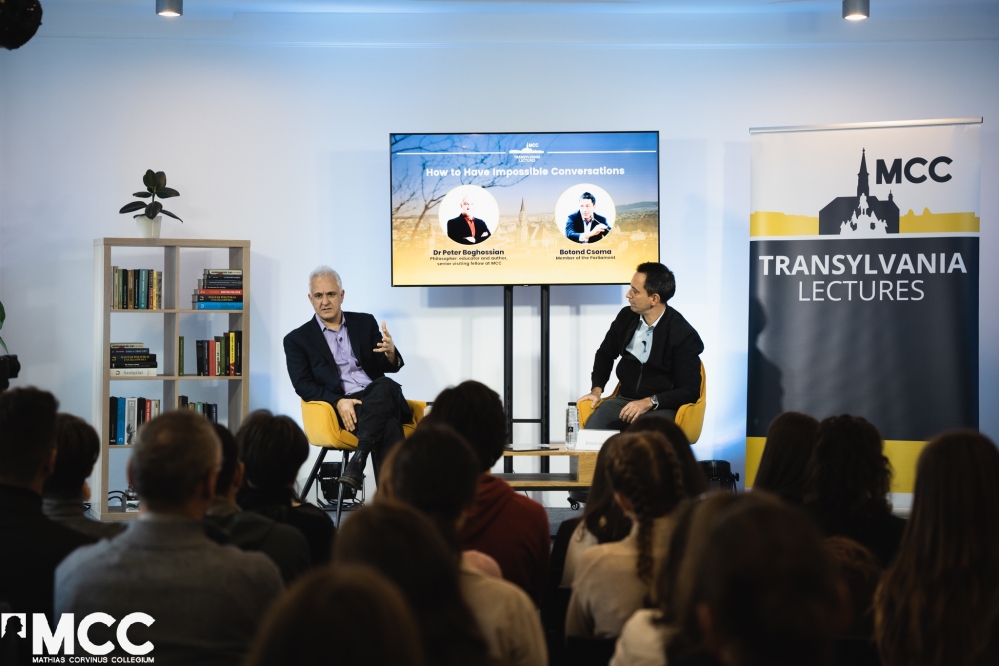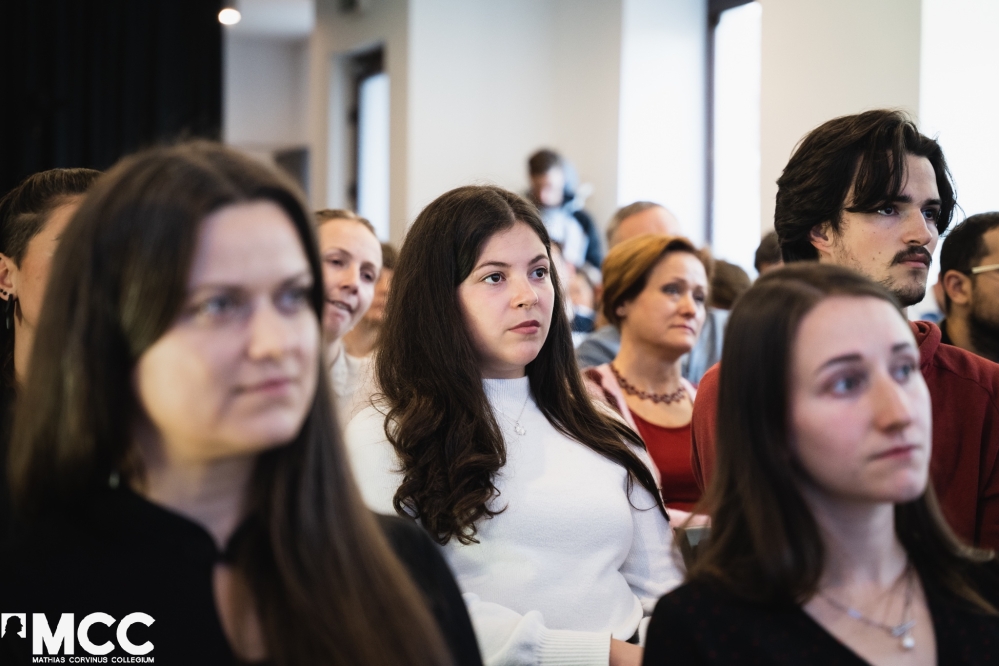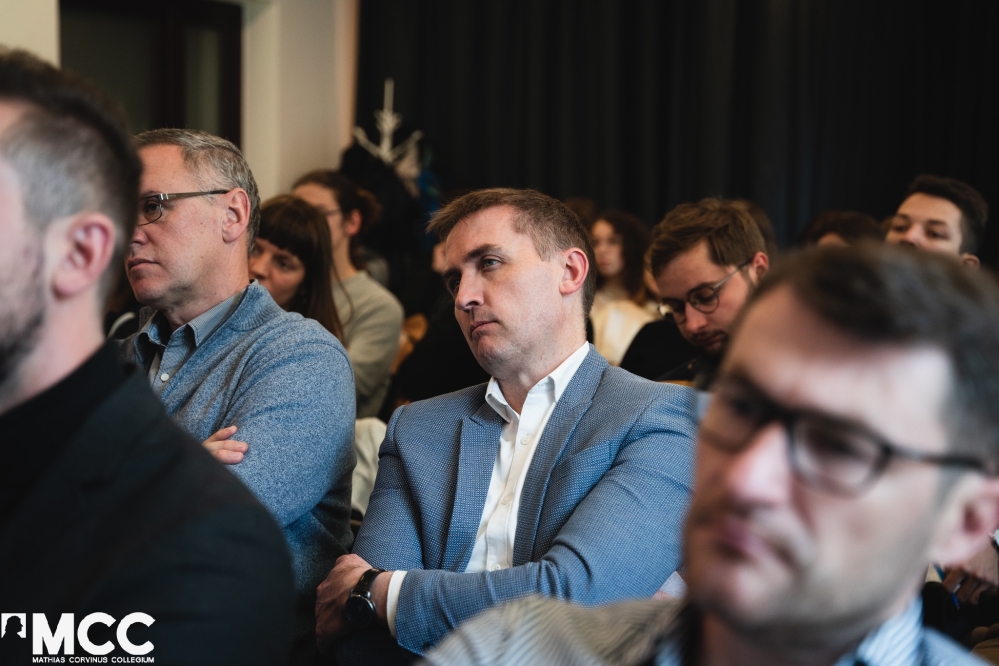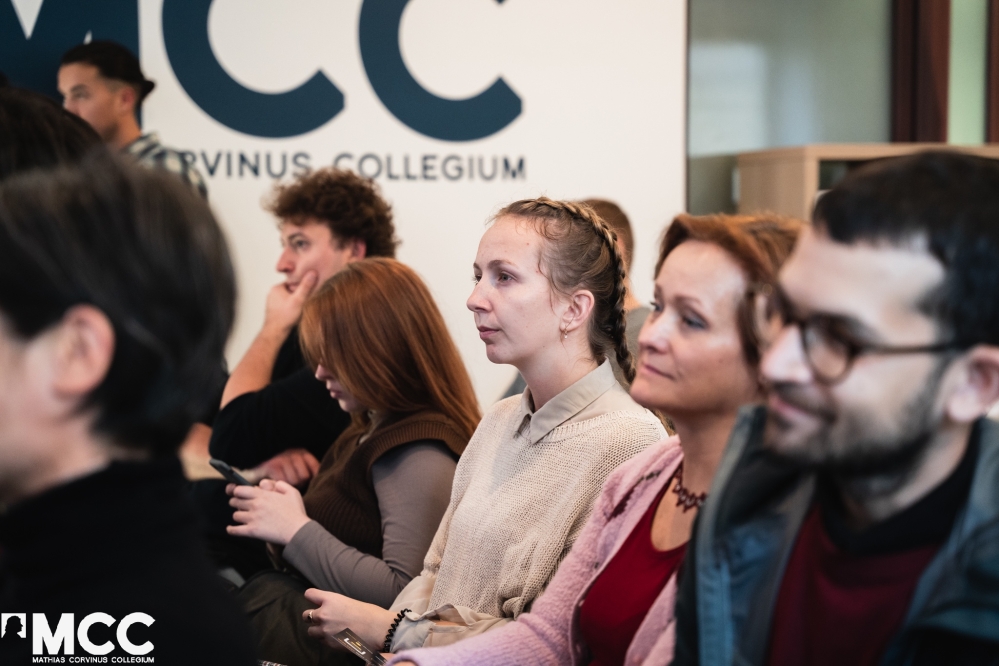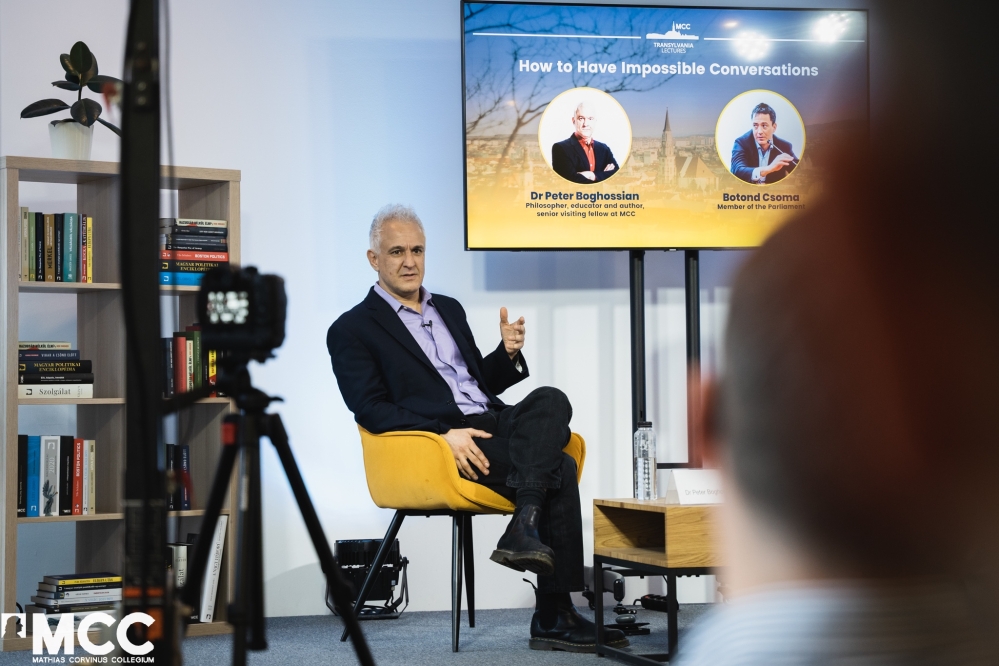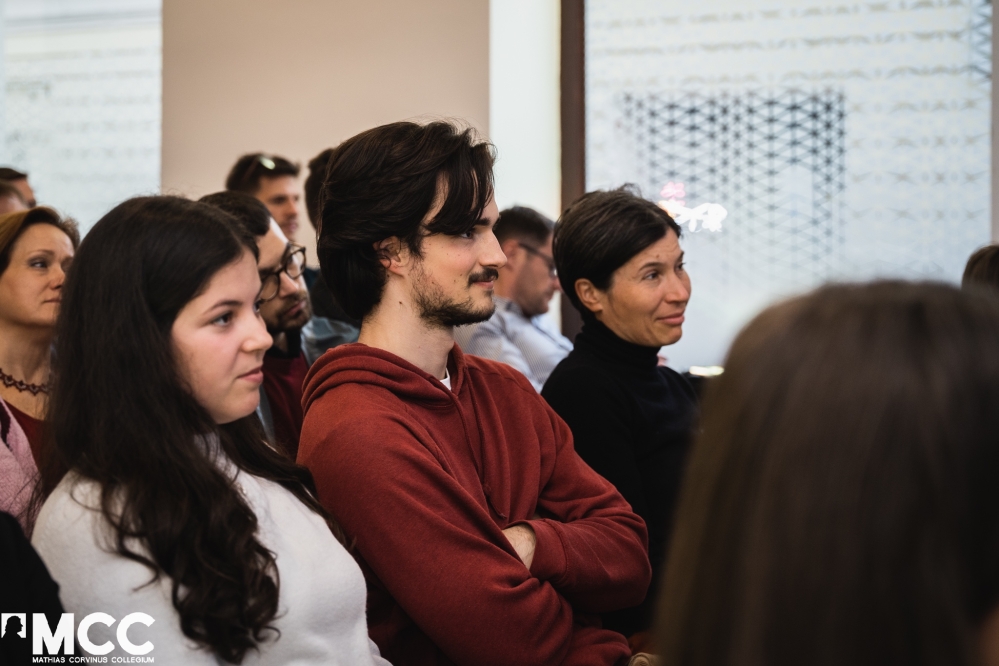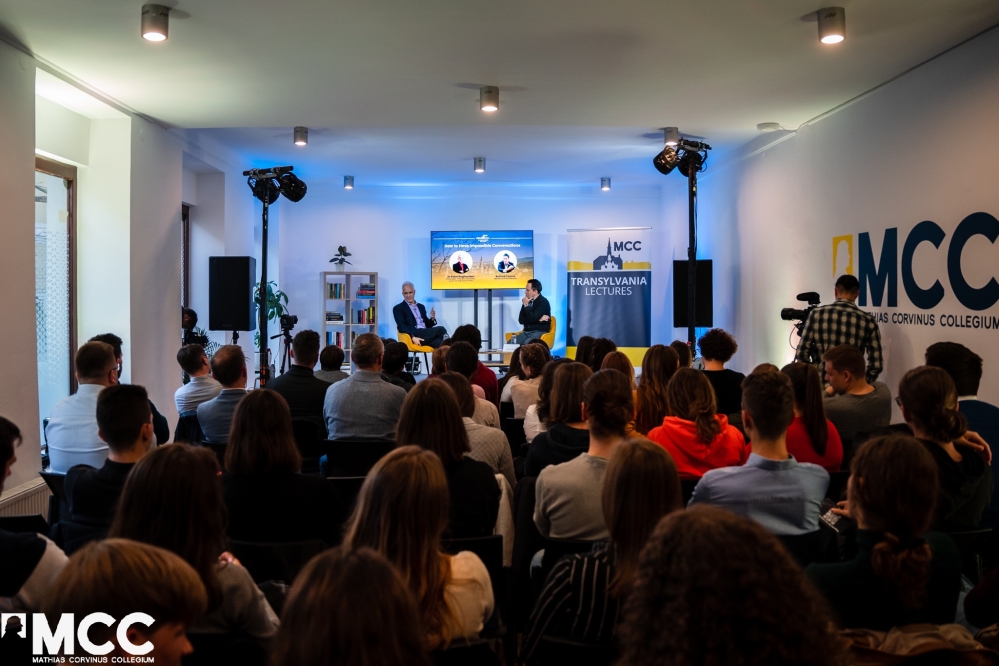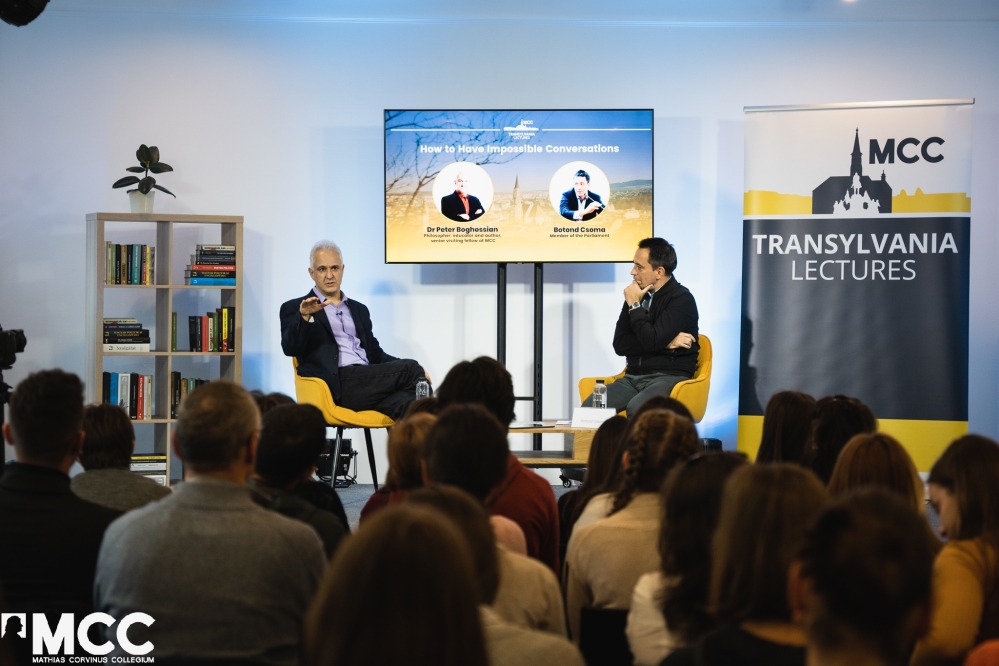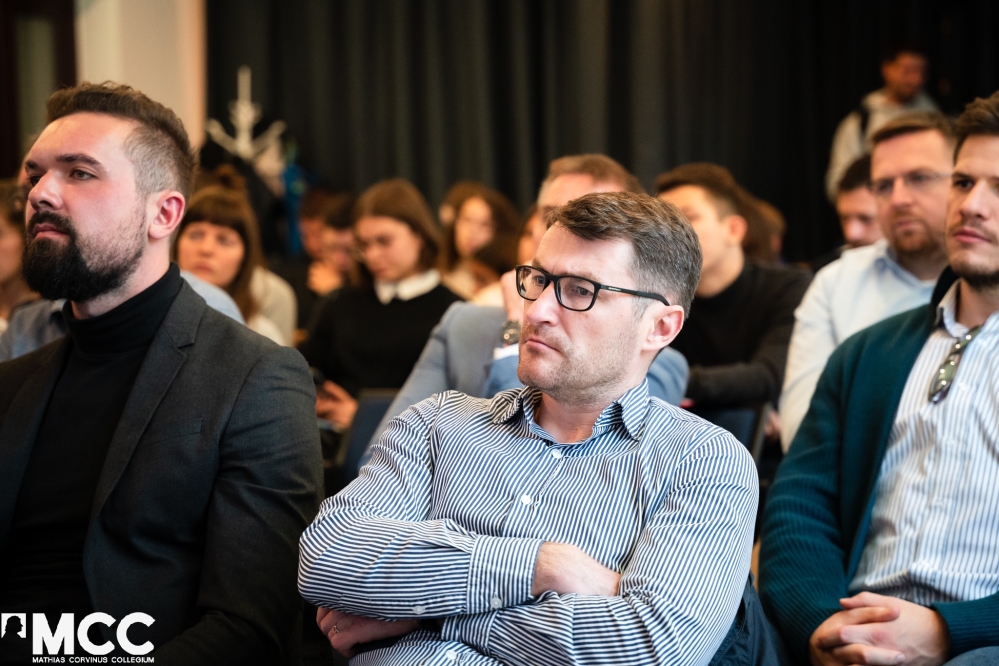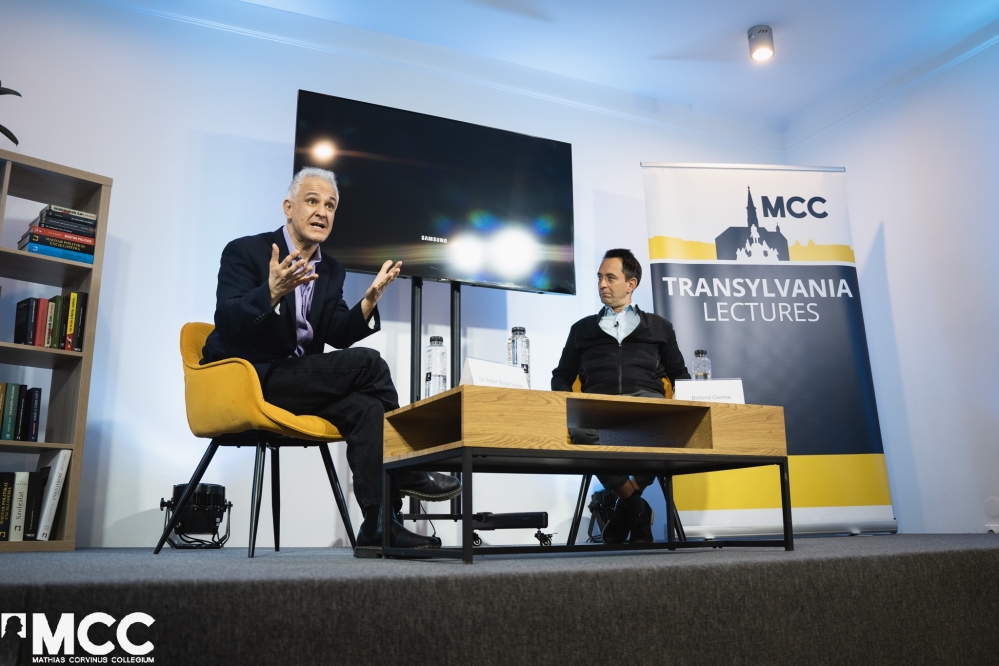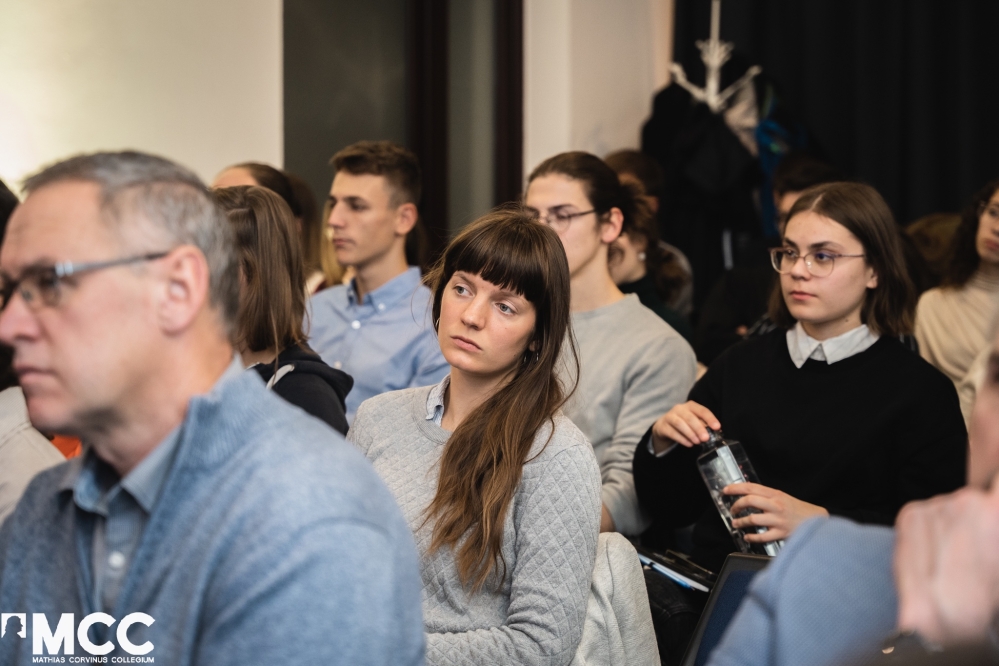Reading time: 5 minutes
Mathias Corvinus Collegium (MCC) had a special guest at its latest Transylvania Lectures event Monday, October the 24th in Kolozsvár/ Cluj-Napoca. Dr. Peter Boghossian, American philosopher and pedagogist, Senior Fellow at MCC gave us practical tools to speak with people who hold different beliefs. The audience could learn strategies to guide them through the most difficult conversations in political, religious, or moral topics.
The presentation titled How to Have Impossible Conversations presented good strategies for talking to people with different world views. The moderator of the discussion was Botond Csoma, lawyer and Member of Parliament. During his stay in Cluj-Napoca, Dr. Peter Boghossian also visited the Faculty of European Studies of the Babeș-Bolyai University, where he gave a lecture titled What is Knowledge? The philosopher also met with students from the MCC's University Program.
Dr. Peter Boghossian is currently a Founding Faculty Fellow at the University of Austin and the Director of National Progress Alliance. His main focus is bringing the tools of professional philosophers to people in a wide variety of contexts. With a teaching pedigree spanning more than 25 years (in prisons, hospitals, public and private schools, universities, Fortune 100 companies, and small businesses), his fundamental objective is to teach people how to think through what often seem to be intractable problems. His primary research areas are critical thinking and moral reasoning. He is the author of numerous publications and the books titled A Manual for Creating Atheists and How to Have Impossible Conversations: A Very Practical Guide.
In the course of his work, he has talked to thousands of people about their beliefs and views. He believes that the greater the differences are between the parties, the greater the need is for relationship building. In this phase, the focus should be on the interlocutor, and not on oneself, he advises. The first step is to find common ground and avoid parallel conversations.
The next step is to listen, ask questions and, if necessary, repeat the information to make sure we have understood it correctly. In the meantime, make sure that the temperature remains low and the person you are talking to does not lose their patience. Beliefs aren’t binary, faith is a nuanced issue, so it is worth assessing, on a scale of one to ten, how sure people are of their own beliefs. "Would you be willing to change your mind? What would it take for you to reconsider your position?" Peter Boghossian advised that we should always try to end our comments with a question, or even imagine ourselves as detectives: we should try to find out what the other person believes.
This basic strategy can be used in conversations that seem impossible. But you don't always have to find common ground; you can leave the conversation at any time or even remain friends with people you disagree with on fundamental issues. The speaker added that unfortunately, in the United States today, if someone has a different opinion (especially politically), they are not only not accepted, but are seen as a bad person, branded as an enemy.
In response to a question from the audience on how to communicate with people who try to cnvinve you aggressively of their views, Peter Boghossian said: it is worth assessing why I am part of the conversation and whether I want to continue, and then we can follow the steps listed above. The speaker pointed out that persuasion only creates obstacles, so it is better to simply give people the tools to convince themselves of their rightness or wrongness. He urged the audience to dare to question themselves, to be humble in their knowledge and to talk to people with different beliefs.
Peter Boghossian resigned last year in an open letter from the University of Portland, where he taught philosophy. In his letter, he explained that “students are not being taught to think. Rather, they are being trained to mimic the moral certainty of ideologues.” According to the letter, the “faculty and administrators have abdicated the university’s truth-seeking mission and instead drive intolerance of divergent beliefs and opinions. This has created a culture of offense where students are now afraid to speak openly and honestly.” Boghossian defied the institution, even at the cost of his career, but does not see himself as the victim. He mentioned that although he openly professes to be an atheist, a majority of Christian, religious people stood by him in this situation.
Dr Peter Boghossian was part of the Grievance Studies affair that rocked the US academic world in 2018. With his colleagues, James A. Lindsay and Helen Pluckrose, he has published a number of absurdly themed, nonsensical fake studies in academic journals. The texts parody the language and choice of topics in today’s social sciences, highlighting the shortcomings of academic journals and universities and the fact that almost anything is accepted if it is presented in the right ideological guise, if it’s morally fashionable, if you can figure out the zeitgeist.
"We have created a generation that believes in falsehoods," said Peter Boghossian, calling the increasingly out-of-touch trends in America crazy. He pointed out that there indeed is systemic racism, sexism and a host of other discrimination problems, but the woke movement refuses to engage in dialogue, does not believe in democracy and capitalism, and aggressively labels anyone who questions it as racist or sexist. According to the speaker, the movement is not sustainable in the long term because it does not accept dissent, rejects all criticism and therefore cannot develop.
"We launched the Transylvania Lectures series in February, and every month we invite renowned foreign speakers to Cluj-Napoca, who are actively involved in the most important public, social and business processes of our time. I am glad that we manage to cooperate with local institutions, teachers and leaders when organizing our events, so that the topics we raise respond to the needs of the community", said Botond Talpas, general director of MCC Transylvania. He added that the lectures aim to provide a space for a free exchange of ideas between students, academics, interested members of the local community and invited speakers.
In addition to the monthly Transylvania Lectures, the MCC organizes public events all over Transylvania, which you can follow on the Collegium's Facebook page.
